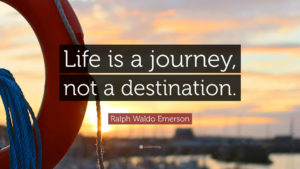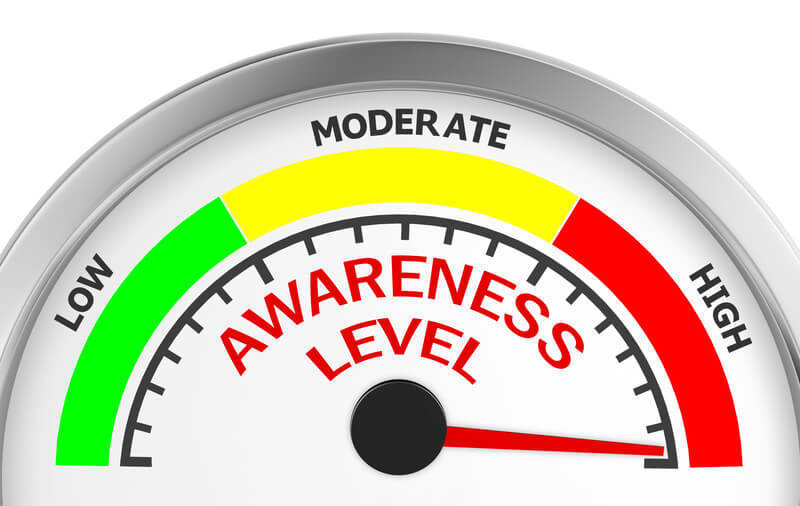Using the map GPS app on your phone to get from Point A to B works pretty well.
If you’re old enough, you can easily appreciate this. It beats the old ways of finding your way around town.
People used to print out directions on paper and navigate around like pirates using a treasure map.
Sometimes they bought a dedicated GPS unit.
Before that, when they were in a new town, they’d buy a map at a gas station or a Kmart and strain to look at all of the little side streets listed on it.
Sometimes they’d go up to a local and ask directions.

The locals didn’t always know what place you were talking about.
Sometimes the local would send off alarms ringing in your sixth sense, your intuition. This is the wrong person to be asking anything of!
Life is a journey. Too bad there’s not a Google GPS to help you go through life, to navigate from point A to B, to get where you should be going.
Nothing automatically makes you meta-aware when it comes to going through life.
The best thing you’ve got is dream journaling, supplemented by reading works of wisdom and pertinent knowledge.
Dream journaling provides reflection upon your day-to-day experience. The works of wisdom and pertinent knowledge provide you with positive input.
When you put them all together, it’s referred to as meta-awareness, metacognition, or situational awareness.
Meta-awareness
Meta-awareness refers to the ability to be aware of one’s own thinking process, feelings, and actions, and to recognize the patterns.
By being aware of our awareness, we’re able to use our knowledge to make more informed decisions, reflect on our own thoughts and behaviors, and be more mindful of how we interact with our environment.
Furthermore, meta-awareness helps us to understand how our beliefs, values, and expectations shape our experiences and interpretations of the world. In addition, meta-awareness allows us to detect errors in our thinking and make more adaptive decisions.
It’s similar to the concept of situational awareness, though that term is more targeted toward a particular situation and not as expansive as the idea of meta-awareness.
Metacognition means much the same thing, but seems to be used more in situations that involve learning. It involves paying attention to your mental processes as you learn.
Meta-awareness helps with mental flexibility, problem-solving, and decision-making as it allows people to become aware of their behavior and to adjust it. It also plays a role in emotional regulation, increases emotional intelligence, and stems a wandering, undisciplined mind.
How it all works together
Say you’re influenced by Stoic thought: control what you can and forget the rest.
Your company has implemented a top-down decision to install a new computer system at all sites.
You hear from associates at other sites that the new system is terrible. When they put it in there, the backlog of work increased by 300 percent. It went slowly.
Can you stop the new system from being installed?
No. From everything you hear, the company is convinced that the new systems solve a lot of the problems with billing and eventually increase efficiency.
Stopping “progress” is out of your control. You know from your philosophical reading that you’re better off focusing on only that which is in your control.
What do you do?
It depends on you and how you feel about the new system. If you’re in leadership at your site, it depends on the people you have working with you. Can you get them ready?
You know from your dream journaling that your co-workers have a lot of obligations to their family, that they worry about them constantly. Being put 300 percent behind is not going to go well for them.
You know, too, from your dream journaling that you’re in a period where you’re working toward your long-term goal: freedom to pursue a career in another field.
Can you brace them for the impact that the new computer system will make upon their life? Can you warn them to take action?
They might respond by making alternate childcare arrangements. Having their spouse make dinner that night. Whatever.
Meta-awareness also includes works of pertinent information.
That includes training on how to use the new system, project implementation, how to get deadline extensions, and message boards where they go over lessons learned from other company sites where the team implemented the new system first.
Dream journaling, works of wisdom, and works of pertinent information will work together to help you get the best outcome possible.
James Cobb RN, MSN, is an emergency department nurse and the founder of the Dream Recovery System. His goal is to provide his readers with simple, actionable ways to improve their health and maximize their quality of life.
We use affiliate links. What this means is that if you click on a link and make a purchase, we may receive a commission from it. This has no influence on our opinions.
